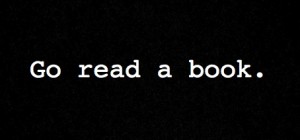Featured Articles:
-
“5 Things Effective TJEd Families Never Say” by Oliver & Rachel DeMille
-
“A New Year’s Personal Retreat: New Year Resolutions TJEd Style” by Oliver DeMille
******************
Featured Article:
5 Things Effective TJEd Families Never Say
by Oliver and Rachel DeMille
 Warning: Straight talk ahead. Proceed with caution.
Warning: Straight talk ahead. Proceed with caution.
Over the years we have found that each January there is a surge of new interest in TJEd as some parents are rethinking their kids’ educational options. After a couple of quarters of disappointment with whatever was happening since September, they’re ready to make some changes.
Whether you’re just pulling your kids out of public school or reconsidering your approach to your homeschool, just finding your way back to TJEd with a New Year’s Resolution, or simply a TJEder happily on the path of Leadership Education, we hope that this month’s topic is timely.
It is a little bit sensitive, as it doesn’t pull any punches, and this topic is the intersection of a couple of hot-buttons that are very personal for all of us: our kids and our habits.
So sit right down with a hot cup of chamomile tea and some relaxing music, and read on…
Time for a Change
The fact is, getting better results than you got before means change. You and me changing. So we’re going to do our best with this month’s issue to suggest how change might bring better results. So feel the love here, thank us in advance for our honesty and know that we shine the light on this subject with the very best of intentions.
We’ve been teaching the principles of Leadership Education for nearly three decades now, and we still notice two types of people who learn about TJEd. One type flourishes, the other struggles and sometimes even quits—unless they find out and implement what is working for the first type.
When we first started teaching the principles of TJEd, we thought everyone would just naturally resonate with the 7 Keys of Great Teaching and leap to apply them. After our initial period of discovering them, this was our personal experience; so we weren’t surprised when many people did the same. But we were a little surprised when a some people kept asking…
“But how do you actually do this?”
For several years we offered special trainings and materials for those who asked this type of question. Eventually, after working with many thousands of people attempting to apply the timeless principles of Leadership Education, we began to notice an interesting pattern.
This led us to begin asking certain questions anytime someone seemed to struggle with TJEd. The first, most obvious question, was:
Have you actually read the TJEd books?
We found that many people were inspired to look into TJEd because of the example of a family that was excelling using the TJEd principles, and yet sometimes the investigator never really paid the price to fill their own bucket and were not successful in “winging it.”
The bottom line is, getting off the conveyor belt is challenging under the best of circumstances; but trying to follow the path of Leadership Education without actually owning your role as the leader of the expedition (by immersing yourself in the principles through study and practice) is a good way to end up wandering aimlessly, and taking your family down a path of frustration.
Happily, most people do get past this first hurdle. The next questions were:
“What is the last great classic you have read?”
and
“What are the top 5 classics you’ve read this year?”
When someone said, “TJEd is great for literature and history, but what about science and math?,” we learned to ask, “What are the top 5 math classics you’ve read in the last few months?”
The answers to these questions have been extremely instructive, because for a family without extreme or unusual circumstances, they are the easiest way to separate those who are effectively applying TJEd and those who struggle. This led to a general rule about Leadership Education:
“Those who do, teach. Those who don’t, can’t.”
Just this week, a friend of ours lamented that she was doing really poorly in inspiring math. She is a brilliant and intuitive educator, and yet she found herself falling back into assigning and requiring where math was concerned. Rachel asked her, “Do you like math?” She admitted that she really didn’t. Rachel then asked, “What fun books about math have you read?” You can probably guess what her answer to this question was.
This makes sense, after all. If you are reading the math or science classics, you are going to be able to mentor them better than if you aren’t studying them. And if you’re not, you probably don’t even know that there actually are some really fun math books out there.
So, after years of watching tens of thousands learn about and try to apply the principles of Leadership Education, here are the 5 things we’ve learned that…
Effective TJEders don’t say:
- “The TJEd system is strong on educational philosophy, but it doesn’t really help with application.”
- “TJEd is good for literature and history, but not math or science.”
- “TJEd seems great, but how do you actually do it?”
- “If I don’t force and require my child to study, won’t he just do nothing?”
- “I read classics in high school and college, so right now I want to just focus on the kids’ education.”
We’ve used the Socratic Method to respond to many thousands of people, and success in Leadership Education boils down to one thing. Really. Here are some examples of our conversations:
Struggler: “TJEd is good educational philosophy, but what about application?”
Response: “What are the 10 top classics you’ve read in the last year?”
[Straight Talk: Reading and discussing the classics is application. Truly. This is how great education has been done throughout history. The lecture-and-test model is not nearly as effective in terms of transformation or application.]
Struggler: “TJEd is good for literature and history, but not math and science.”
Response: “What are the top 5 math and science classics you’ve read in the last six months?”
[Straight Talk: Learning to calculate is not that hard. Really. And we have some great thoughts on how to do that. But until you experience math and science from the greats, you’re really not acquainted!]
Struggler: “TJEd seems good, but how do you actually do it?”
Response: “What are the last four great classics you’ve read?”
[Straight Talk: Once you taste and feel the impact that the classics have on the way you think, on what you think about, on how they relate to and teach all across the curriculum in such an efficient and inspiring way, this question sort of goes away.]
Struggler: “If I don’t force my daughter to study, won’t she just stop studying altogether?”
Response: “What are the top 5 great classics you’ve read aloud to your daughter in the past five months?”
[Straight Talk: TJEd holds that children who are manipulated or coerced academically while young very often learn to dislike learning, hate school, and avoid whatever assignments they can. The result of such learning is a nation of students who do the bare minimum whenever possible, or, at best, do their school work in order to impress adults and get good grades (read: get it over with so you can get on with the rest of your life, free of learning requirements) rather than from an innate love of learning. The simple first step of reading aloud from timeless and delightful classics can recalibrate lost love of learning; and our Mentoring in the Classics coaches further organizational and implementational tools to inspire a true love of learning.]
Struggler: “I already have my education, so why should I read classics when the kids’ education is the focus?”
Response: “What are the top 5 classics you’ve read recently with your 14-year-old son in mind as you read?”
[Straight Talk: The almost-perfect mom-or-dad/educator who is static or stagnant in her progress (intellectually dormant – well-educated or not) has virtually no power to animate others to self-education and success in a personal mission. In contrast, the earnest and enthusiastic efforts of a committed self-educator to continually grow and improve can lead to amazing results in those she works with! Bottom line: that kind of energy is contagious, and it’s the best way to inspire great learning.]
Those who have read 10 classics in the last year, 5 great math and science classics, 4 classics aloud with the kids, and 7 classics with a specific mentee in mind, etc., rarely ask such questions—because they don’t typically have these problems or concerns.
If you’ve read 10 classics effectively in the last year, TJEd is more practical than philosophical to you. If not, it’s a bunch of philosophy.
If you’ve read and closely studied a pile of great math classics this year, you don’t wonder if TJEd is good for math. You know it is—and you dive into showing what you’ve learned from the math classics in age-appropriate ways with your students.
If you’re reading great classics aloud with the kids, you don’t worry about forcing their education because they beg you to read even more—and they frequently ask for help finding additional things to study on their own.
If you’ve read 4 classics with your 15-year-old daughter specifically in mind, you have so much to share with her that you’ve had to restructure your life just to find enough time to talk with, listen to, and discuss things with her.
TJEd works when we do TJEd. TJEd works when we—as parents and teachers—read classics and share what we learn. TJEd works when we are studying the classics, and then passionately passing on what we’ve studied. If we don’t actually do TJEd, it doesn’t really work that well.
TJEd, or Leadership Education, is not just about helping your kids live up to their leadership potential. It’s about YOU leading out in that process, and inviting them along. Until you really find for yourself the genius of “You, not Them,” you will forever feel insecure about leading out, and you will struggle to instill in them the value of self-education. That means you’ll get caught in the trap of assigning and requiring. And you’ll wonder why TJEd doesn’t work.
But that’s not what’s going to happen for you. As you come face-to-face with greatness, you will approach and expand your potential as the expert on your own home, your children will follow your lead with confidence and zeal, and you’ll be a light to others looking for answers – not only in the realm of family education, but also in the area of your personal mission. Isn’t that exciting?
Face to Face with Greatness
In truth, we’ve pretty much all been in that place where questions rage in our minds, where doubts and concerns make us worry if the 7 Keys will really work. But that was before we were making a daily study of the classics. Once we’re doing our part, the excellence and energy of the great classics take away almost all of our insecurities. As we come face-to-face with greatness in the classics, it rubs off.
But if we never fully take on a personal study of the classics, we’ll always struggle with the principles of Leadership Education. We’ll think it’s just philosophical, or not good at math, or one of the other things people think when they don’t study the classics along with the concepts of TJEd.
Even those who have learned to study the classics can lapse if they stop making classics part of their current life. Over time, if we let the demands of life push away our study time for weeks or months, the fears and anxieties naturally return. When we aren’t being daily inspired by the great classics, it’s hard to keep inspiring others. But in such cases, those who have experienced the power of the classics know that the blame isn’t in the principles, but in our own neglect of the greats. Great mentoring means great inspiration, and that must be renewed often—daily if possible—from the great works.
So, if you ever find yourself struggling to apply the principles of Leadership Education, ask yourself the really important questions:
-
“What are the top 10 classics I’ve read in the last year?”
-
“What are the top 5 math and science classics I’ve read in the last six months?”
-
“What are the top 3 great classics I’ve read aloud to my daughter in the past five months?”
-
“What are the top 5 classics I’ve read recently with my 14-year-old son in mind as I read?”
Most of us can do better at all of this. And when we apply the principles, we see increased success—without fail. The principles of success are real, and they are powerful. If we ever find ourselves struggling to make TJEd work, the first step toward success is to ask if we are doing our part. When we read and apply the classics, we become truly effective mentors and inspirational leaders. When we don’t, our struggles will tend to increase.
Fortunately, the great classics are on the shelves! We only have to pick them up and go to work… That feeling of “secure, not stressed,” that makes us feel like our education is flourishing—because it is—is just 20 minutes away. And it is so fun. So grab a classic, find a couch, and get that feeling of success flowing! TJEd works when we do TJEd, which means to open the classics and keep reading.
 And, as we have so often done in our seminars, let us end with this: If you needed someone to give you permission to take time on your own education, to stop the world and read a book, then let us volunteer to be the ones.
And, as we have so often done in our seminars, let us end with this: If you needed someone to give you permission to take time on your own education, to stop the world and read a book, then let us volunteer to be the ones.
You have permission to read a book.
A deposit into your own education is not a withdrawal from your children’s. It’s just the opposite! Except it pays back not in tomorrow’s inflated dollars, but on a gold standard. It’s an investment that grows in value as the years go on.
Ready to get started? Here’s what’s next >>
****************
A New Year’s Personal Retreat: New Year Resolutions TJEd Style
by Oliver DeMille
 The new year is an ideal time for a powerful personal retreat. Many tribal traditions in history used vision quests to get life direction, while during the Agrarian Age a summer hike to the lake or time spent pondering in nature fulfilled a similar function. In the Industrial Age, leaders learned how important a company retreat can be, and mothers everywhere know the value of a weekend away to recharge and refocus.
The new year is an ideal time for a powerful personal retreat. Many tribal traditions in history used vision quests to get life direction, while during the Agrarian Age a summer hike to the lake or time spent pondering in nature fulfilled a similar function. In the Industrial Age, leaders learned how important a company retreat can be, and mothers everywhere know the value of a weekend away to recharge and refocus.
In TJEd, we emphasize a special kind of personal retreat that we call The Six Month Inventory. We recommend that each person do this at least twice a year, and the new year is a fabulous time for this powerful and life-improving exercise.
So how do you do it? Well, even if you’ve read about the Six Month Inventory before [discussed in our book, The Phases of Learning], the following review is extremely helpful.
First, schedule a morning or an afternoon that you can get away and spend some time alone. You will need about 2-3 hours to do this well. On the chosen day, find a peaceful place to sit alone where you can relax for a while. This may be your family room or bedroom or the library or a park. If you can get away to a beach or a mountain ski resort, great. But a simple quiet, undisturbed time in your own room can be just as effective. For those with small children or large families this can be especially challenging; but with some advance planning – perhaps trading child care with a friend, or budgeting for a babysitter who can bring your baby to you as needed – you really can make this work on some level.
Take a blank notebook and several pens or pencils. If candles, flowers, special treats/snacks or a hot tub help you get into the zone, include these in your Six Month Inventory.
This is similar to the Blank Page Brainstorm that we recommend on a weekly basis; but this is more involved, more time-rich, with some different kinds of questions that really add dimension to your mentoring/parenting toolbox, and give you an excellent compass going forward.
Hour 1
Once you are relaxed, start by taking a deep breath and just breathing in a feeling of relaxation and peace. Then pull out your notebook and go to work.
At the top of each page, write the following: [if other questions present themselves in addition to, or instead of, these – go with it!]
Page 1—What I need to do to be a lot more happy?
Page 2—What I need to do to be a much better husband or wife?
Page 3—What I need to do be a better person?
Page 4—What I need to do be better at my work or job?
Page 5—What is the number one thing I need to improve my life in the next six months?
Now take a while to ponder, consider, brainstorm, pray, question, plan, etc. about each of these questions. Write down your thoughts for each of the 5 questions. Write in bullet points, and take the time to really outline how you can significantly upgrade your life in the 5 questions at the top of these pages.
Hour 2
Now, when you are done with the 5 questions above, turn to additional blank pages in your notebook and do the following: List each child—and anyone else you mentor—and also your spouse if applicable at the top of their own page.
Then spend some time to ponder, consider, brainstorm, pray, question, plan, etc., concerning each individual. Do not make a list of assignments to give, but rather list things you can/should do. This “to do” list if for You, not Them. Consider the following questions for each person:
- What are his/her biggest interests?
- What are his/her greatest fears?
- What are his/her fondest dreams?
- What are his/her top needs in the next six months?
- What can and should I do to help fulfill those needs?
- What else should I do?
Write bullet points filling at least one page per person on your list. Do not take time right now to analyze your thoughts, or even decide which are good and which will not work. Just write down everything that comes to mind.
Hour 3
 Now, once you have completed everything above, go through each item and weave together an action plan for yourself and for each person in your notebook. Again, don’t make a list of things for them to do—this is about things you can do to help them.
Now, once you have completed everything above, go through each item and weave together an action plan for yourself and for each person in your notebook. Again, don’t make a list of things for them to do—this is about things you can do to help them.
This takes time, and it takes some focused mental work. But it is exactly this work that makes you an effective leader, colleague and mentor.
For some people this can be accomplished in 2-3 hours while for others it may take a little bit longer. But the Six Month Inventory is a great exercise for all of us—and the new year is a perfect time for it.
Keep it simple, not complex. Don’t overthink it. Just get some time alone with a notebook, get yourself in a relaxed frame of mind, and brainstorm these questions as outlined. Then make a simple plan for key things you can do in the next six months.
Such a simple exercise makes all the difference in your effectiveness. Once you’ve done it effectively, you’ll be amazed at how valuable these few hours are in your life. So do yourself—and everyone around you—a favor this new year season. Do a Six Month Inventory, and do it soon. Then follow through on the plans you make.
This kind of vision quest can make all the difference in your life. Unlike new year’s resolutions—which most people drop after a few weeks—an Inventory gives you an overarching direction for the year ahead.
Above all—have fun with this! It’s important work, and something this important is best done with a smile on your face. Enjoy!
To read Rachel’s recap on the same subject, click here >>


